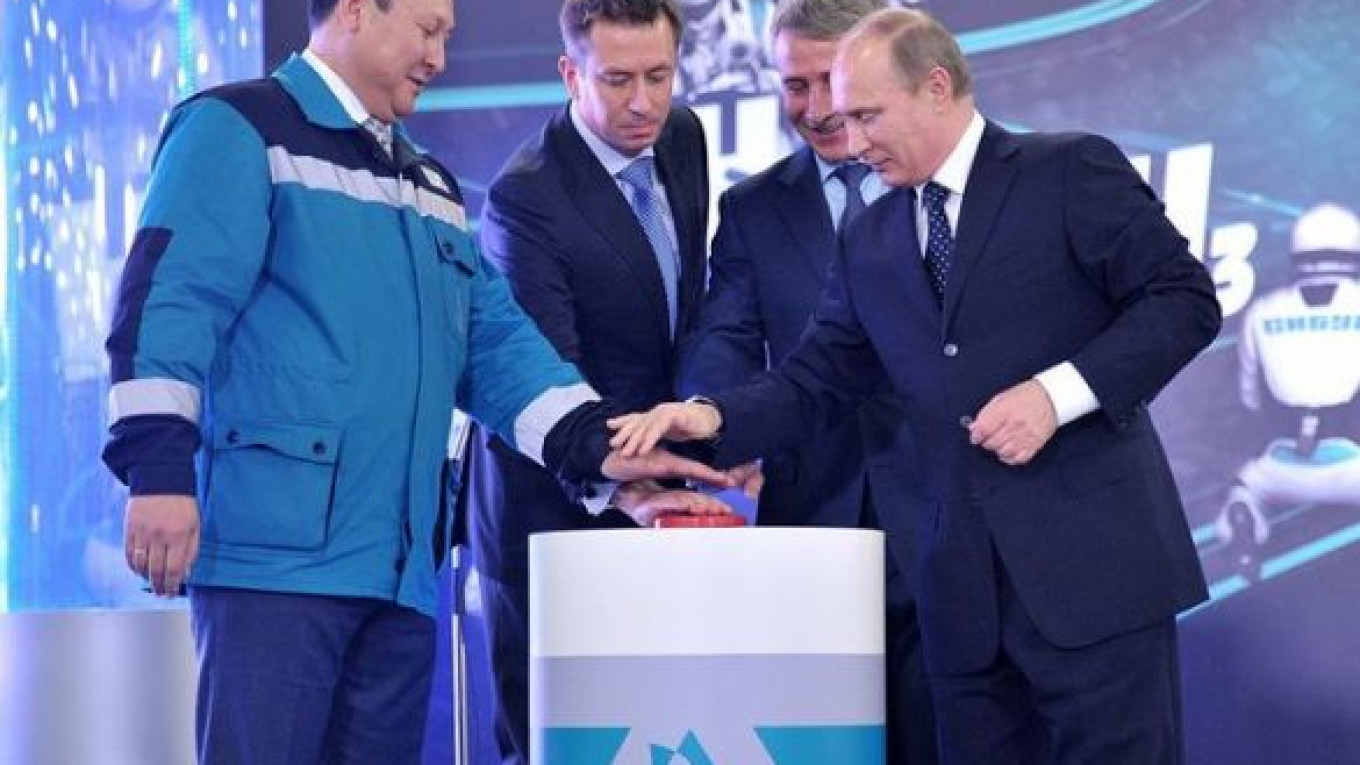Production started at one of the world's biggest polypropylene factories near Tobolsk in the Tyumen region Tuesday, an event that may transform Russia from an importer to exporter of this widely used material.
Tobolsk-Polymer, a subsidiary of Russian petrochemical company Sibur, will annually produce 500,000 tons of the plastic, which is used in everything from packaging to car parts, and will employ 460 workers.
It took three years and $2 billion to build the plant. In 2010, the company received a $1.4 billion loan granted by a number of international credit agencies and syndicated by state-owned Vneshekonombank. The remaining part was financed by Sibur's own funds.
More than 320 companies from 23 countries were involved, providing services and materials to the project, which is considered to be the biggest in industry history.
The new production site will increase Russia's existing polypropylene output by 40 percent and make it possible to export the plastic to other countries.
"Though it sounds strange, Russia, which has such a large resource base, still imports this important product in large volumes," President Vladimir Putin said at the plant's official opening Tuesday.
Polypropylene import will decline as the factory begins to produce, he added.
In 2012, Russia produced 650,000 tons of polypropylene while consuming more than 840,000 tons.
According to IHS Chemical research agency, the domestic polypropylene market will grow by 4.2 percent through 2020. World consumption of the plastic has been growing steadily and reached 50 million tons in 2011.
In addition to meeting local demand, Sibur plans to export the plastic to Europe and China.
Polypropylene is used to make a variety of products, including packaging, labeling, textiles, containers, stationery and automotive components.
It is made from propane gas, which is a by-product in the process of extracting oil.
Almost a quarter of this gas in Russia is simply disposed of by flaring.
"We have been talking about utilizing associated petroleum gas for years," Putin said. With the launch of Tobolsk-Polymer, 5 billion cubic meters of gas will go into production cycle out of a total of 17 billion cubic meters that is being flared, he said.
Oil and gas companies are invited to use the new facility to put their associated gas to good use and at the same time save money on own refining facilities, Sibur CEO Leonid Mikhelson said in a statement.
Mostly, however, the company will use its own propane sources.
The new production site is situated close to a Sibur gas processing factory, Tobolsk-Neftekhim, which will supply over 600,000 tons of propane per year.
According to Sibur, the cost of making one ton of polypropylene at Tobolsk-Polymer puts it in the top 10 percent in terms of effectiveness among such plants worldwide.
The launch marks the realization of plans to build a petrochemical plant in the area that date back to the 1980s, when it became evident that the Soviet Union, despite being the world's largest gas supplier, lagged behind other countries in its processing capacity.
Contact the author at a.panin@imedia.ru
A Message from The Moscow Times:
Dear readers,
We are facing unprecedented challenges. Russia's Prosecutor General's Office has designated The Moscow Times as an "undesirable" organization, criminalizing our work and putting our staff at risk of prosecution. This follows our earlier unjust labeling as a "foreign agent."
These actions are direct attempts to silence independent journalism in Russia. The authorities claim our work "discredits the decisions of the Russian leadership." We see things differently: we strive to provide accurate, unbiased reporting on Russia.
We, the journalists of The Moscow Times, refuse to be silenced. But to continue our work, we need your help.
Your support, no matter how small, makes a world of difference. If you can, please support us monthly starting from just $2. It's quick to set up, and every contribution makes a significant impact.
By supporting The Moscow Times, you're defending open, independent journalism in the face of repression. Thank you for standing with us.
Remind me later.






